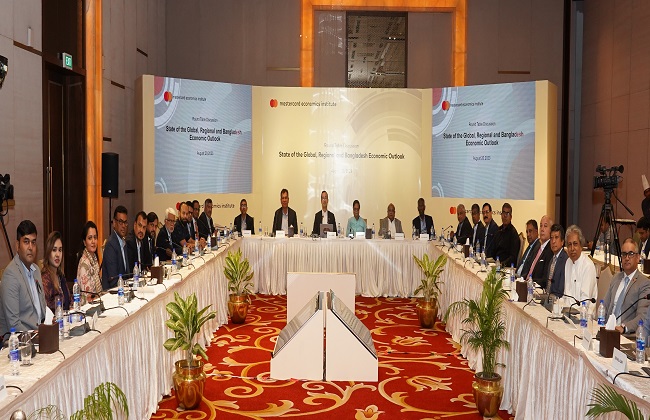
Bangladesh can now cover four months’ import cost with its foreign currency reserves, which is the lowest in the last six years, according to the Mastercard Economic Institute.
The information was revealed at a roundtable discussion on the “State of the Global, Regional, and Bangladesh Economic Outlook” organised by Mastercard on Sunday in Dhaka.
In the keynote, David Mann, chief economist for Asia Pacific and Middle East Africa at the Institute, showed that Bangladesh was able to cover 12 months’ import cost with its forex reserves in mid-2020.
But the coverage capacity has been declining and stands at four months in June this year, he said.
The programme discussed post-pandemic challenges of high inflation, fixed volatility, and a higher debt burden and how they have impacted emerging markets severely, especially those with twin deficits.
Ahsan H Mansur, economist and executive director of Policy Research Institute said Bangladesh is facing a dollar crisis in the short term period.
“However, the situation did not come overnight. Our export and remittance are performing well where the financial account is in deficit,” he said.
“A lot of payments are due in the power sector. The dollar crisis is part of our medium- and long-term problems. Our tax-to-GDP, export-to-GDP, import-to-GDP, and remittance-to-GDP ratios are not going in the right direction. The government went to the central bank and printed money to meet up the cost,” the economist added.
Mastercard Economics Institute is a global research and advisory group that develops innovative measurements and translates economics into results.
Country heads of development partner organisations, managing directors, chief executive officers of Mastercard partner banks and fintech organisations in Bangladesh participated in the event.


